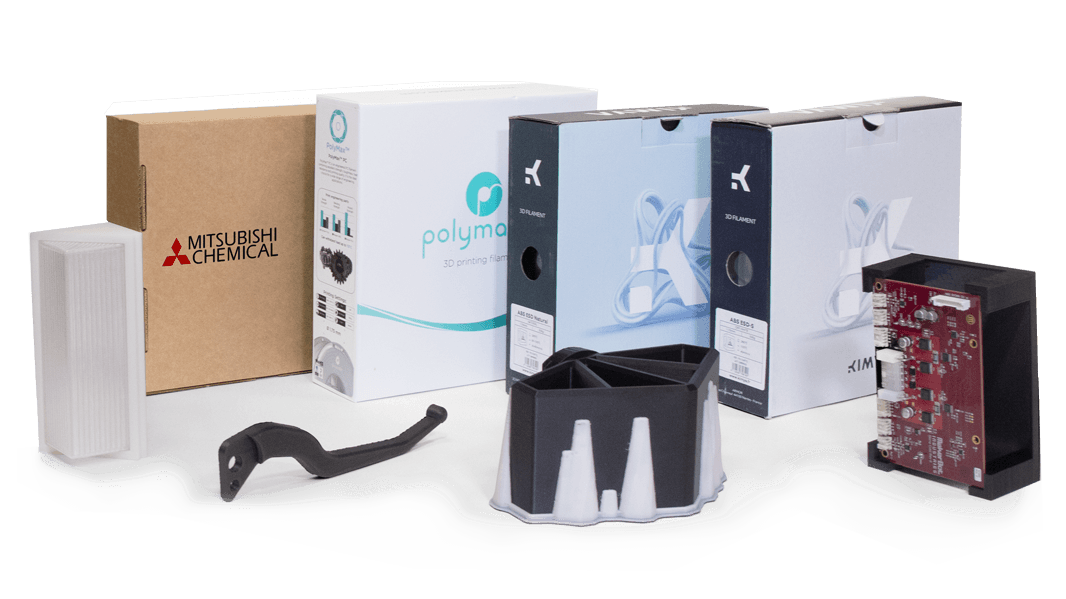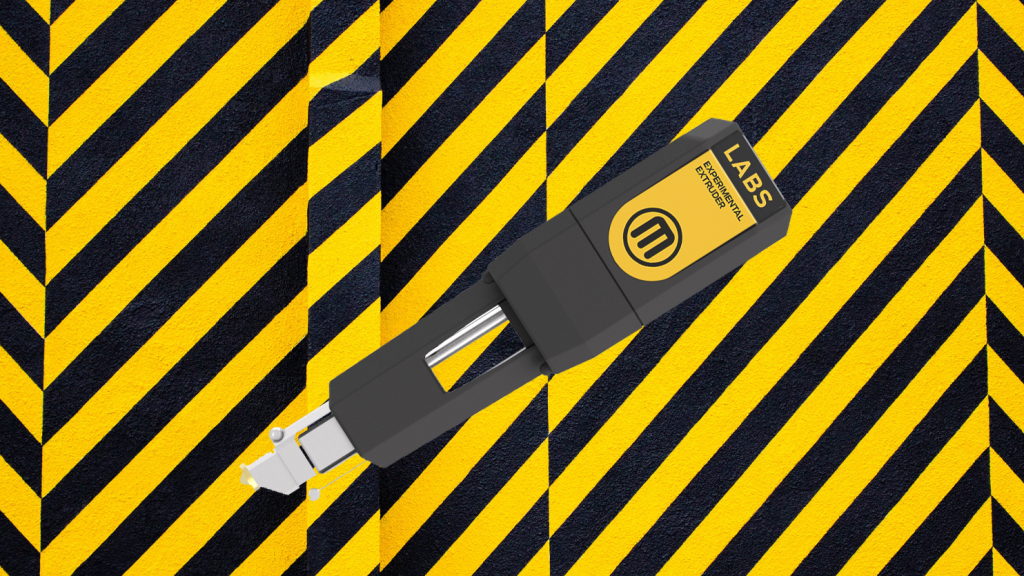MakerBot has upgraded its Method 3D printing platform with a new MakerBot Labs extruder, which will allow its desktop FDM 3D printer to build parts with a wide range of engineering grade materials.
The Method Materials Development Program, announced in November 2019, has since added some big name polymer suppliers – including BASF 3D Printing Solutions, Lehvoss Group, Jabil, Polymaker, Kimya, and Mitsubishi Chemical – and the new materials don’t disappoint.
At launch, the new open materials platform includes:
- Polymaker PolyMax PC: Polycarbonate (PC) has excellent toughness, strength and heat resistance. PolyMax PC works well with Method’s soluble SR-30 supports to print more complex parts than on a desktop 3D printer. This filament opens new applications in the automotive, railway and aerospace industries.
- Jabil PETg ESD: Jabil Engineered Materials PETg ESD is an easy processing, Electrostatic Dissipative (ESD) product for printing parts that meet sensitive electronics and could be damaged by electrostatic discharge.
- Jabil TPE SEBS 1300 95A: A flexible material with a 95A durometer that bends, flexes, and stretches, and has demonstrated success in printing complex geometries. Unlike other elastomers, SEBS 95A is not sensitive to moisture and doesn’t require drying.
- Kimya ABS CARBON: An ABS composite material with 30% chopped carbon fiber for improved stiffness and compression strength, as well as lower weight than regular ABS.
- Kimya PETG CARBON: PETG reinforced with carbon fibers for excellent stiffness and increased tensile strength over regular PETG.
- Mitsubishi Chemical DURABIO: DURABIO is an engineering, bio-based, BPA free resin. It combines PMMA’s transparency with a higher chemical and scratch resistance compared to polycarbonate (PC). The core applications for the material are in automotive, housing, interior and exterior décor.

Key to getting the best from these materials is some of the knowhow, materials and patents from parent company Stratasys, including the availability of its soluble Stratasys SR-30 support material, which should allow for hollow composite lay-up moulds to be built.
The original Method water soluble PVA support and 100°C heated chamber remains, meaning users can print complex geometries with proper materials that are otherwise tricky to print successfully on a desktop 3D printer.
There’s a lot to play with in the new interchangeable nozzle assemblies and expanded print settings in MakerBot’s print preparation software, MakerBot Print.
The Labs extruder can reach up to 300°C, and includes sensors that track temperature, materials, and extruder jams.
“By transforming Method into an open materials platform, we provide our users with an incredibly powerful tool to realise their ideas,” said MakerBot VP of product development Johan-Till Broer.
“Engineers can now print a growing number of advanced third-party materials on an industrial 3D printing platform, which was designed to produce stronger and more accurate parts than competing desktop 3D printers.”
Broer added that with MakerBot’s new partners that they expect the platform to further expand to explore the boundaries of what’s possible with Method, and to unlock new applications.
The MakerBot Labs programme started in October 2017, as the company pivoted to embrace more professional users.






